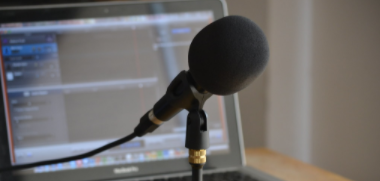
How do I become a music producer?
Advanced Diploma of Music
- There are no mandated entry requirements.



Diploma of Music (Sound Production)
- There are no mandated entry requirements.





Certificate IV in Music (Sound Production)
- There are no mandated entry requirements.





Bachelor of Arts (Music)
- There are no mandated entry requirements.







Bachelor of Arts (Music Studies)
- There are no mandated entry requirements.



Bachelor of Music (Honours)
- There are no mandated entry requirements.







Related occupations
Production Manager
A Production Manager oversees production processes, coordinating schedules, managing staff, and ensuring quality control to meet standards.
Audio Visual Technician
An Audio Visual Technician operates equipment for productions, ensuring sound and vision quality while collaborating with the team.
Sound Engineer
A Sound Engineer ensures audio quality during various productions, using equipment to monitor and edit sound while collaborating within a team.
Musician
A Musician performs music solo or in a group, specialising in an instrument or vocals, often rehearsing extensively and engaging audiences live.
Music Tutor
A Music Tutor teaches singing or instruments to individuals or small groups, tailoring lessons to beginners or advanced students.
Music Manager
A Music Manager represents artists, secures bookings, negotiates contracts, and manages multiple clients, requiring strong organisation and communication.
Music Publisher
A Music Publisher promotes artists' songs for commercial use, negotiates contracts, and secures deals across film, TV, and advertisements.
Audio Engineer
An Audio Engineer ensures high-quality sound for recordings, mixing audio and adding effects while collaborating with the production team.
Music Composer
A Music Composer creates music for performances, events, productions, or recordings, collaborating with musicians and production teams.
Songwriter
A Songwriter composes music and lyrics for various artists, potentially specialising in genres like pop or classical, while understanding industry trends
Music Editor
A Music Editor edits recordings, ensures quality for publishing, makes song adjustments, and collaborates with the team during production.
Assistant Sound Engineer
An Assistant Sound Engineer records, edits, and mixes audio, ensuring clarity and volume for various productions, working irregular hours as needed.
Music Therapist
A Music Therapist uses music to enhance well-being, develops therapy plans, conducts sessions, assesses progress, and collaborates with healthcare teams.
Sound Technician
A Sound Technician operates audio equipment for performances, recording and mixing sound to ensure high-quality audio during productions.
Music Conductor
A Music Conductor leads ensembles, directs performances, interprets scores, sets tempos, and collaborates with musicians and production teams.
Film Score Composer
A Film Score Composer creates music to enhance films' mood, working with directors, composing, arranging, and revising based on feedback.
Music Journalist
A Music Journalist writes and edits content about music events, concerts, and artist interviews for media, requiring strong communication skills.
Musicologist
A Musicologist researches music history, theory, and culture, documenting traditions, analysing works, and contributing to education or preservation.
Theatre Director
Theatre Directors conceive and implement artistic visions for productions, directing actors and coordinating all elements to bring scripts to life.
Disc Jockey
Disk Jockeys (DJs) mix recorded music for live audiences at venues like clubs and festivals while interacting with attendees.
Vocal Coach
Vocal Coaches enhance performers' confidence and skills, providing exercises and support for singing, speech, and articulation.
Ethnomusicologist
An Ethnomusicologist studies cultural music, conducts field research, analyses traditions, and collaborates to promote musical awareness.
Music Librarian
A Music Librarian manages musical collections, assists patrons, and supports music education while ensuring access and preservation of resources.
Accompanist
An Accompanist supports performers by playing instruments, enhancing rehearsals and shows through collaboration and musical expertise.
Music Historian
A Music Historian researches and interprets music's history, focusing on genres, composers, and cultural influences in academic settings.
Session Musician
A Session Musician performs instrumentally or vocally for recordings and live shows, adapting to various genres and collaborating with artists.
Common questions
How much does a Music Producer earn?
In Australia, a full time Music Producer generally earns $1,580 per week ($82,160 annual salary) before tax. This is a median figure for full-time employees and should be considered a guide only. As you gain more experience you can expect a potentially higher salary than people who are new to the industry.
What are the job opportunities for a Music Producer?
Employment opportunities for a Music Producer have remained stable over the last five years and there are currently 7,000 people working in this job role in Australia. Music Producers usually work in larger cities and towns.
Source: Australian Government Labour Market Insights
How do I become a Music Producer?
If you’re planning a career as a Music Producer, a Diploma of Music Industry would be a good qualification for you. You’ll learn more about music performance and explore aspects of a range of music genres. You could also further your studies with an Advanced Diploma of Music Industry.
Further reading


Choosing a security licence course in Australia: A step-by-step guide for jobseekers
10th November 2023)

